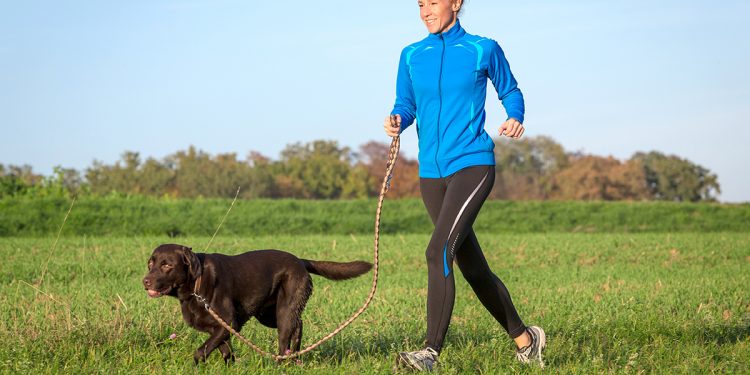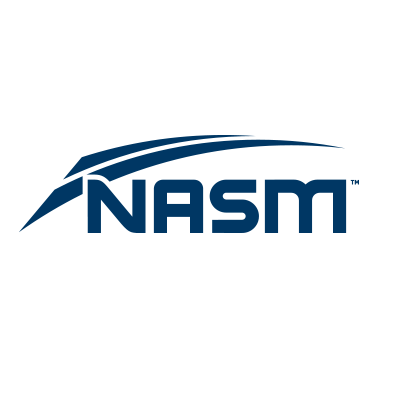More and more fitness professionals are targeting specific demographic groups - from road warriors to dog lovers to cancer survivors and patients. Does it work? Trainers reveal the rewards—and the challenges.
On-the-Go Goals
After 10 years as a corporate road warrior, Marcey Rader, NASM-CPT, quit her job to become a full-time health/lifestyle coach for mobile professionals, both locally and online. Though she’s based in Raleigh, N.C., her current client base extends into Canada.
“It’s going really well, better than I imagined,” says Rader, who is also a Certified Productive Environment Specialist with a bachelor’s degree in exercise science and wellness and a master’s in health promotion and health and exercise management.
“The more I researched starting a business, the more I realized that I had to specialize,” she says. “And since I’ve lived this challenge and know a lot of people who do it every day, it was natural.” Traveling for work is a lifestyle, she says, and it can be difficult to exercise and stay healthy, both on the road and at home.
Rader makes it easy for clients. She provides a range of face-to-face and virtual services, from coaching and exercise sessions to systems that cover nutrition, exercise, and productivity for travelers. As part of her deluxe, one-on-one plan, she studies a client’s connecting airports, hotels, and calendar to find healthy options for meals. She tailors workouts to the traveler’s schedule and the available equipment. And she’s always accessible, often via Skype sessions, providing productivity tips for home and the road.
The toughest part of starting up has been finding good marketing partners. “The first company I hired didn’t understand what I was trying to do,” Rader says. “But if something isn’t going right, you can’t blame your partners, you have to make the decision yourself. If you stay too long when something isn’t working, it’s your responsibility.”
Rader hired a new firm, and she loves her new site, marceyrader.com. She’s forged several partnerships, including one with Lift, a to-do-list app, where she challenges users to exercise for 25 minutes a day for 25 days. The goal is to reach as many people as possible, all around the world.
But the clients she works with every day give her the most fulfillment. “There are nights when I can’t sleep because I’m so excited about the difference I’m making in these people’s lives,” Rader says. “A little note from a busy client about how I made their day better can really lift me up.”
Double the Benefits
Rachel Cantore, NASM-CPT, CES, PES, FNS, has always thought of herself as a niche provider, combining personal training with life, nutrition, and gymnastics coaching. Now, she’s found a new specialty. Cantore launched a K9 Fit Club near her home in Laguna Niguel, Calif. It’s part of a Chicago-based franchise that offers people/pet workouts and hopes to eventually go nationwide (k9fitclub.com).
“It’s an amazing business niche,” Cantore says. “It’s unique. People want it. It’s a really good idea, and we’re right at the beginning of it.”
K9 Fit Club features classes, such as Bow-Wow Bootcamp, in which people and dogs work out together, lead by a Certified Personal Trainer and supervised by a dog “wrangler.” (Both pros also have K9 Fit Club certification.)
For Cantore, who grew up with, lives with, and loves dogs, it’s a path to greater fulfillment. She sees more and more obese dogs out there, often with overweight people in tow. On top of that, holding outdoor classes for people and pets has helped her gain clients, she says. The niche makes it easy to recruit people, whether by attending events such as Yappy Hour at a local hotel or by striking up conversations in parks or on the street.
“Anytime I see someone with a dog, I have an opening,” she says. “I greet the dog and owner, then introduce myself and what I have to offer.”
The challenge is getting them to understand exactly what that is, and that working out with a dog is fun, safe, and effective. “I find myself saying, ‘It’s a real thing,’ a lot,” Cantore says. Once she gets to that point, people perk up with questions and are often interested in trying it out.
The clientele is full of folks who wouldn’t normally use a personal trainer, according to K9 Fit Club founder and president Tricia Montgomery, who was inspired to beat her obesity when a vet told her that she and her dog were overweight.
“There are a lot people who would never come to a gym without a dog,” says Montgomery, a certified trainer. “It’s a huge market, and it’s underserved. People are busy, and they may have to choose between walking the dog and working out. This lets them have it all.”
When Montgomery opened the first K9 Fit Club in August 2012, a half hour before the first class, 23 people were waiting outside. Cantore has had a similar reception for her outdoor classes, which she hopes to grow into a facility.
“I watched Tricia teach at the opening, and I was hooked,” Cantore says. “And now, the people I’m teaching are getting hooked just as fast.”
Taking Control of Cancer
Working with cancer patients and survivors to rehabilitate, get fit, and take their lives back is natural for Andrea Leonard. After surgery for thyroid cancer as a teenager, she struggled with weight and a sluggish metabolism, which eventually led her to a career as a personal trainer.
Today, Leonard is president of the Portland, Ore.-based Cancer Exercise Training Institute (CETI), an NASM-approved continuing education provider. CETI offers the Cancer Exercise Specialist Advanced Qualification, which certifies fitness and medical professionals to work safely and confidently with cancer patients and survivors. The program can qualify practitioners to work with medical providers, many of whom bill patients and then pay trainers or therapists. CETI also has a new Breast Cancer Recovery BOSU Specialist certification.
“At CETI, we are training and credentialing nurses; physical and occupational therapists; personal trainers; and yoga, Pilates, and group exercise instructors,” Leonard says.
The niche is huge yet underserved. “We had 25 trainers at a recent workshop in New York City, but there are nearly one million cancer survivors in the state of New York,” says Leonard. “Everyone’s been touched by cancer in one way or another. It’s an untapped market.”
In fact, the National Cancer Institute estimates that approximately 13.7 million Americans were living with a history of cancer in 2012, and it’s expected that more than 1.6 million were diagnosed in 2013.
Leonard started working with cancer patients in 1996, then set out, with the help of a medical advisory panel from Washington, D.C.’s leading hospitals, to co-author Essential Exercises for Breast Cancer Survivors, first published in 2000. She has since penned nine editions of the Cancer Exercise Specialist Handbook and started the nonprofit Breast Cancer Survivor’s Foundation, which transitioned into CETI in 2004.
“It’s my personal evolution,” Leonard says. “I’ve gone from serving a limited number of individuals as a personal trainer to educating other fitness professionals to become Cancer Exercise Specialists. This has given me a much broader reach, indirectly allowing me to make a difference in so many people’s lives.” That, she says, is the beauty of focusing on the cancer population. Many clients are beaten down, their lives stripped away. And they have very specific needs, based on the disease and treatment they’ve received.
“You get the opportunity to give them their life back,” Leonard says. “It’s powerful, it’s rewarding, it’s wonderful. Even if you lose someone to the disease, you know you helped make their life better in the short term.”
When Leonard started out, she “had a lot of doors slammed” in her face, because cancer rehabilitation was such a new concept. She’s had larger organizations try to steal her ideas and methods. And it’s been a ton of work, especially keeping up with the surgeries, protocols, and exercise regimens for the many forms of the disease. “But if you persevere and truly believe in what you’re doing, you will be successful,” Leonard says.
How to Find Your Niche
Trying to figure out which specialty offerings will work for you, in your location? Here’s some advice from our experts:
- Study census data. You can see demographic trends like average age and socioeconomics, says Cody Lingelbach, NASM-CPT, CES, PES, GPTS, FNS, SFS, a senior education advisor with NASM. Then you can tailor your offerings (and your rates) to meet those trends. “Figure out where you want to be—whether it’s a 55-plus community, your city’s cancer facility, or the grade school nearby—and then do what it takes to get there,” Lingelbach says.
- Look inside. “Find a market that you’re truly passionate about,” says Andrea Leonard, an NASM CEU provider who trains fitness professionals to become Cancer Exercise Specialists. “You need to love what you’re doing or people will see right through you.”
- Ask potential clients. Through a seminar or focus-group session, you can pick the brains of members at your facility to see what they’re looking for. “Sometimes, a talk like that can help clients see what they need and realize that they need help,” Lingelbach says.
- Be unique. “Don’t do what everybody else is doing,” says Leonard. “It’s a little harder at the start, but it will pay off.”
- Partner up. “Don’t be afraid to reach out to people or companies that are bigger than you,” says Marcey Rader, NASM-CPT, a nutrition, fitness, and productivity expert for mobile professionals. She’s partnered with equipment companies and even an app developer. (Her advice also works for medical facilities and other places where your niche population gathers.)
- Boost your skills with specializations. Learning how to train special populations can set you up to focus on market niches. Consider specializations like the Senior Fitness Specialist or Weight Loss Specialist from NASM, or continuing-education programs like those from the Cancer Exercise Training Institute. “It’s a way to separate yourself, to let people in those populations understand that you know what you’re doing,” says Lingelbach. “I talk to a lot of people, and specializing works.” Check out all of the NASM specializations at nasm.org or call 800-460-6276 to consult with an educational advisor.

















